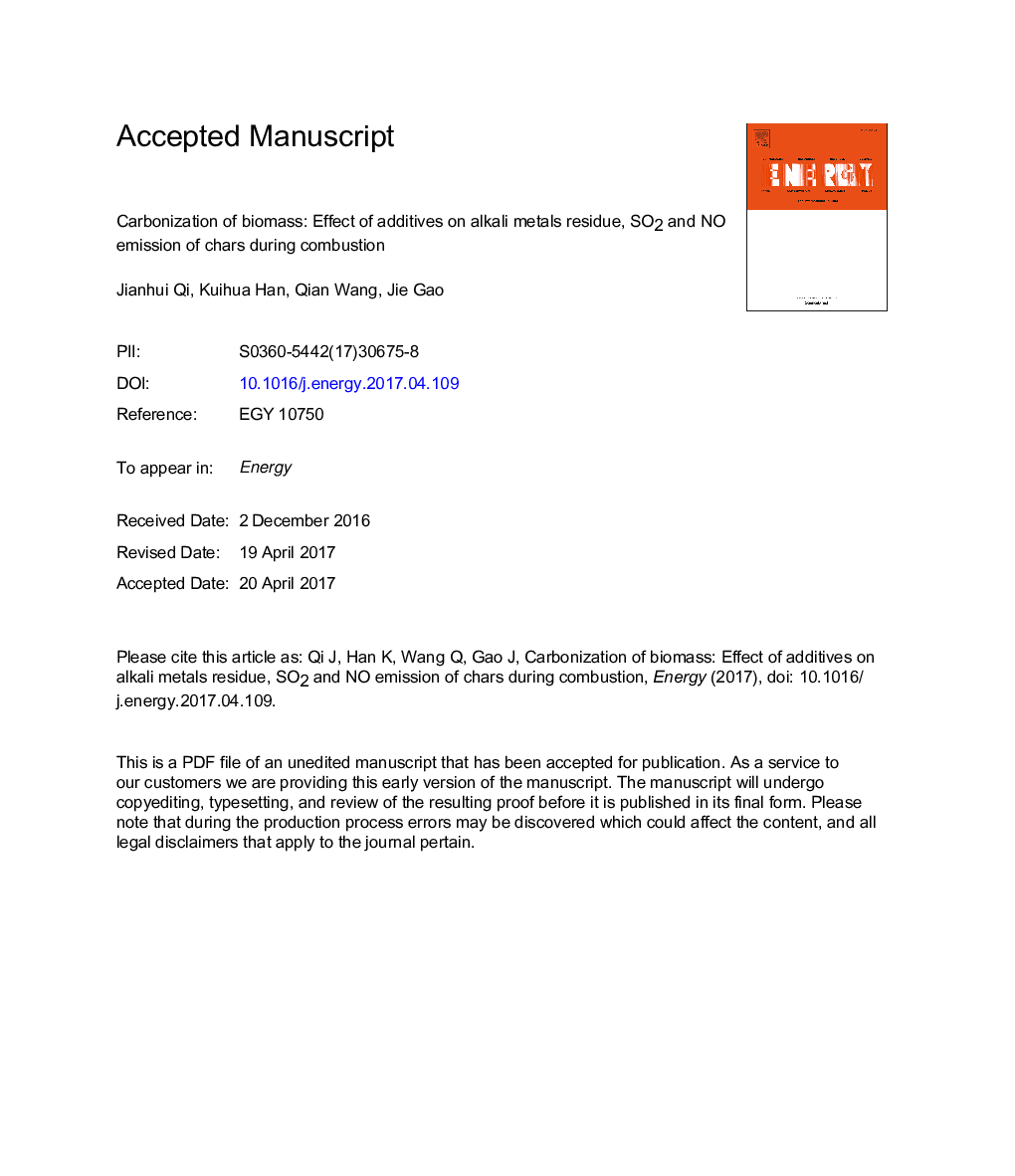| Article ID | Journal | Published Year | Pages | File Type |
|---|---|---|---|---|
| 5475803 | Energy | 2017 | 37 Pages |
Abstract
The effect of additives (NH4H2PO4, CaCO3 and CaO) on biomass carbonization was studied in the current paper, including residual K and Na in chars, SO2 and NO emission of different chars during combustion. Experiment was carried on a tube furnace system. The results show that, CaO and NH4H2PO4 reduce the alkali content of chars to different degree. Three additives inhibit SO2 emission from raw and carbonized biomass remarkably, and SO2 mass emission is lesser than 0.1 mg gâ1. Three additives enhance NO emission at different levels, and NO mass emission is from 1.2 to 3.5 mg gâ1. Both raw and carbonized biomass can be modified by some additives to achieve near zero emissions of SO2. Although the additives promote the NO release, the total emission rate (3.8-10.1%) was much lower than that of brown coal combustion, which was reported as 33.5-37.7%. Economic analysis shows that three additives are economy for industry utility. Thus the three additives are good for modifying biomass carbon to attain clean and efficient combustion.
Keywords
Related Topics
Physical Sciences and Engineering
Energy
Energy (General)
Authors
Jianhui Qi, Kuihua Han, Qian Wang, Jie Gao,
